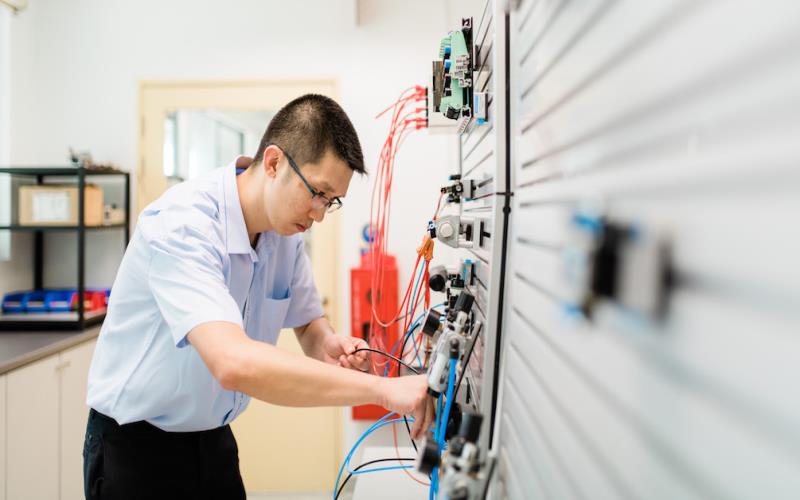In the rapidly evolving landscape of technology and innovation, the journey of budding engineers is both exhilarating and daunting. At the heart of this journey is a crucial stepping stone that bridges theoretical knowledge with real-world application: internships in electrical engineering.
This article delves into the transformative impact these internships have on students, preparing them for the challenges and opportunities of the future.
Bridging Theory and Practice
The transition from academic learning to practical application is a significant leap for many. Electrical engineering internships offer a unique platform for students to apply their classroom knowledge in real-world scenarios. These experiences are not just about applying what one has learned but also about understanding the intricacies and nuances of working on actual projects. Interns often find themselves troubleshooting unexpected problems, working in teams, and communicating technical information to non-experts—skills that are invaluable in any engineering career.
Internships provide a glimpse into the day-to-day operations of the engineering world. From small-scale startups to multinational corporations, each setting offers a distinct learning environment and exposure to different technologies. Whether it’s working on renewable energy solutions, developing new electronic devices, or enhancing telecommunications infrastructure, the scope of work available in electrical engineering internships is vast and varied.
The Human Aspect of Engineering
One of the less talked about, yet fundamentally important, aspects of these internships is the development of soft skills. Communication, teamwork, problem-solving, and adaptability is just as critical as technical prowess in the engineering sector. An internship allows students to develop these skills in a professional setting, preparing them for the collaborative nature of future projects.
Moreover, internships often serve as a crucial networking opportunity. They provide a platform for students to connect with professionals in the field, learn from mentors, and even secure references for future job applications. These connections can be invaluable as one navigates their career path.
A Catalyst for Innovation
Electrical engineering internships are not just about gaining experience; they’re about inspiring innovation. By working on real projects, interns are often at the forefront of technological advancement. They contribute to the development of new technologies and solutions, pushing the boundaries of what’s possible. This hands-on experience fosters a culture of innovation, encouraging students to think creatively and pursue novel ideas in their future careers.
Conclusion
The importance of internships in electrical engineering cannot be overstated. They are a critical component of the educational journey for aspiring engineers, providing a unique blend of practical experience, skill development, and professional networking. These experiences shape not just competent engineers but innovators and leaders who are ready to tackle the challenges of the future.
For those looking to delve deeper into the importance of hands-on experience in engineering education, exploring topics such as the benefits of project-based learning can provide valuable insights. This approach, much like internships, emphasises the importance of applying theoretical knowledge in practical settings, further highlighting the crucial role of experiential learning in shaping the engineers of tomorrow.

